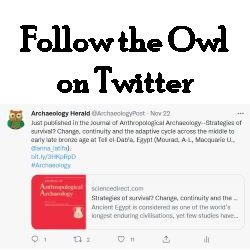Alex Calder, associate professor in the Faculty of Arts at the University of Auckland, has been awarded a $494,000 Marsden grant for his exploration of the literary and cultural history of taboo.
Ideas about taboo are important because they have helped build and modify the frames through which we have come to understand cultural differences, said Calder.

literary, intellectual and, cultural contexts.
Photo courtesy of the University of Auckland.
“Taboo is common to all Polynesian cultures, the Māori word is tapu, and it became an English word for the first time when the journals of Cook’s third voyage were published,” explained Calder. “But why was such an obviously important word not picked up earlier, and what difference would having the concept make?”
He said that an explorer like Cook expected the different people he encountered on his travels to have different customs.
“To say that such and such a behavior was a custom didn’t so much explain the behavior as obviate the need for explanation. But taboo invited speculation as to what lay behind customs: the belief structures of a people or, as we would now say, their culture. Cook thought he could anticipate and manipulate those beliefs, but getting taboo wrong would also contribute to his death,” said Calder.
Missionaries, traders, and beachcombers would later deal in practical ways with taboo while remaining puzzled by the range of its indigenous meanings, and their writings made an archive that would fuel the speculations of ethnologists and the imaginations of literary writers for decades to come.
However, tapu, the contrasting indigenous term, Calder believes, resists a simple gloss.
“It has an inherent sacred quality, traceable to the gods, with connotations of being set apart … restricted. Tapu thins out in translation yet, as taboo, it appeared to combine associations that had become distinct in Western thought: Sacred, but also dangerous, unclean, awful,” he said.
Calder explained that in the mid-19th century, biblical scholars became intrigued by the possibility that Polynesian taboos, apparently preserved in isolation on remote Pacific islands, might open a window onto the tribal world from which the Hebrew Bible emerged.
“The interest of these early scholars lay in separating true religion from superstition, but in the hands of more secular thinkers, taboo would go on to prompt major work in anthropology and psychoanalysis. Frazer’s The Golden Bough, for example, or Freud’s Totem and Taboo,” said Calder.
These, he added, were studies of the so-called “primitive mind,” but Freud was among the first to query that notion.
“After all, many of his sophisticated Viennese patients seemed to be suffering from modern equivalents of ‘taboo sickness’. And in the 1960s, the anthropologist Mary Douglas developed further parallels between the taboos of so-called primitive societies and our own taken-for-granted responses to the ‘dangers’ of dirt in modern life. In her view, taboo is ‘a spontaneous device for protecting the distinctive categories of the universe’. Taboo is a concept that goes to the heart of how all people from all cultures perceive danger, borders, limits, mixed states, and anomalies,” said Calder.
Taboo also was an object of fascination in literary narratives set in the Pacific and those inspired by its ethnography.
“Ideas about taboo inform Coleridge’s albatross, Melville’s white whale, And in Samuel Butler’s Erewhon, they are behind the idea that people should be punished for being sick but congratulated on a successful robbery,” said Calder.
While there have been several anthropological histories of taboo, Calder’s project is among the first to explore it in relation to its wider literary, intellectual, and cultural contexts.
“We know a great deal about the cultural impact of Europe on Polynesia. It is time we knew more about currents running the other way,” he said.
Calder believes all Western claims regarding the nature of tapu need to be handled cautiously.
“The project confronts missionary intolerance, racist theories of the ‘primitive’ mind, and the insidious process by which book-knowledge displaces actual indigenous knowledge, but it also explores how westerners began to know their own culture more deeply by discovering how they themselves were enmeshed in taboo.”




